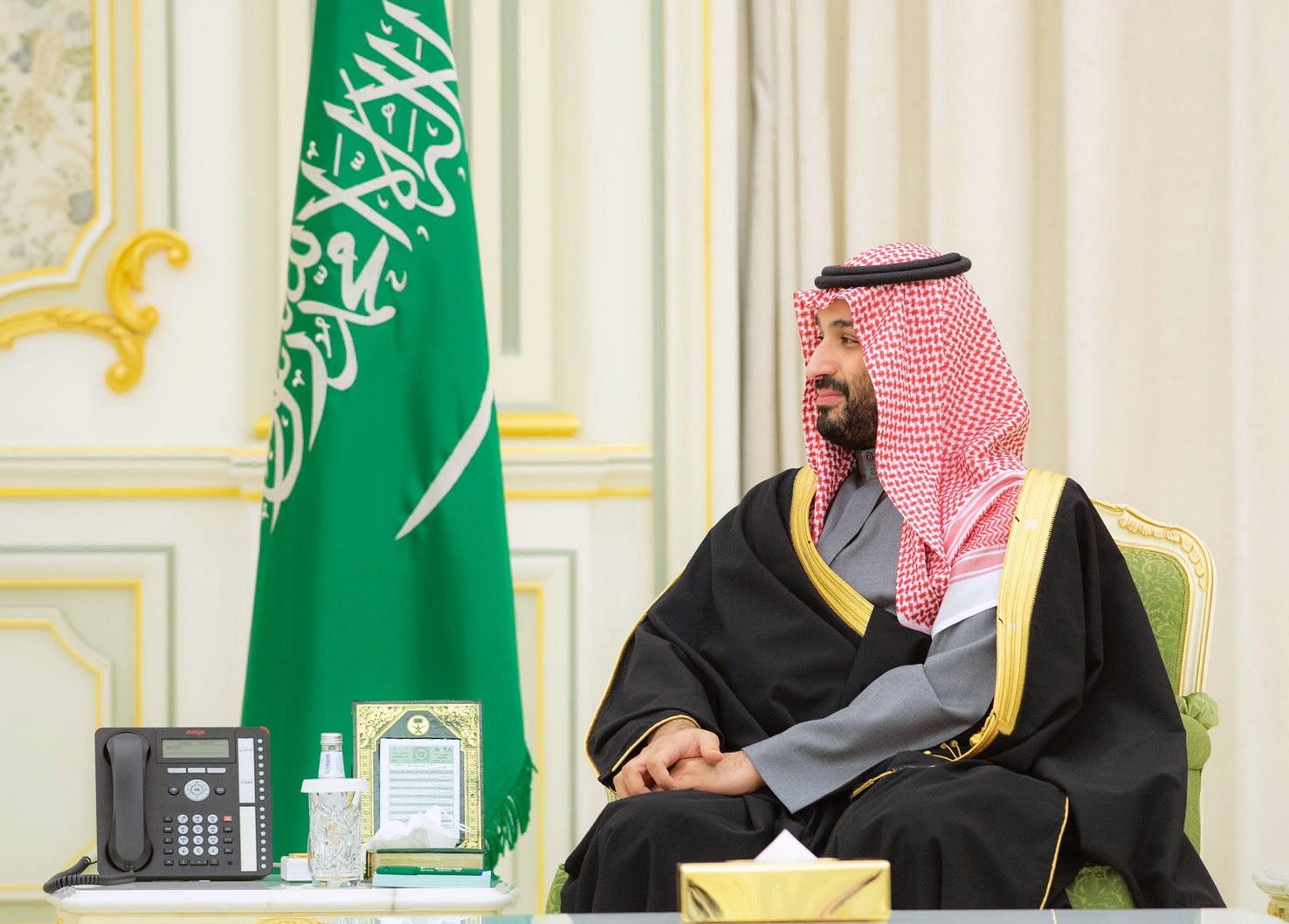Boris Johnson’s visit to Saudi Arabia is a trip too far
Sometimes deals have to be done with unpleasant regimes, but this is a line that did not need to be crossed, writes John Rentoul


One of the worst arguments for defence spending is that it creates jobs. It is an argument that Keir Starmer has deployed to cover his scuttle away from the neutralism of the Jeremy Corbyn years, with the support of trade unions with members in the defence industry. Before that it was one of the mainstays of the case for Britain’s alliance with Saudi Arabia, which has long been built on expensive contracts for jet fighters and associated weaponry.
It was an argument deployed by Tony Blair’s government when it discontinued the Serious Fraud Office investigation into allegations of corruption relating to earlier arms deals. If there had been any corruption, it was said, that was a thing of the past, and it would be counterproductive to press on with the investigation now because thousands of good British jobs depended on continuing arms contracts with the Saudi government.
It was an awkward argument to sustain, but there was a brutally pragmatic logic to it. Much as we might disapprove of the Saudi government’s human rights record, it was in our national interest to remain on good terms with the kingdom. Jobs, intelligence cooperation and the balance of power in the Middle East.
It became a harder argument to make after the killing of Jamal Khashoggi, the Saudi journalist and critic of the Saudi regime, in 2018. It is assumed that the murder was the responsibility of Mohammed bin Salman (MBS), the crown prince and effective ruler of Saudi Arabia. MBS has denied any involvement and insisted in an interview last week that if he wanted to kill anyone, he would have chosen someone important.
Joe Biden refuses to talk to MBS, although Saudi Arabia remains an ally of the US. Boris Johnson feels no such constraint, and is on his way to the Gulf to talk to MBS among others in the hope of persuading them to increase their oil production. This isn’t about jobs in the defence industry, although they are still in the background; this is about trying to soften the blow of energy price rises for British consumers.
This is multistorey cynicism. Not just by putting to one side the Saudi regime’s human rights record – and MBS showed how much he cared about global condemnation of it by executing 81 people last weekend – but by junking (temporarily, of course) any attempt to stay on track for the target of net-zero carbon by mid-century.
This required some brazen assertions by the prime minister today. Asked why he was engaging with “unpleasant regimes”, he said to Sam Coates of Sky News: “Those are your words.” But his answer to the question was: “We’ve got a global crisis that has triggered a spike in the price of oil. In order to avoid being blackmailed we’ve got to get off Russian hydrocarbons.”
He accused Vladimir Putin of being “like a pusher”, keeping Europe hooked on Russian oil and gas. But the implied solution to that is to increase production from elsewhere, from almost equally unsavoury regimes that have avoided making the mistake of invading their neighbours. Johnson blithely asserted black is white, or in this case green, and that increasing output of “hydrocarbons” was a mere staging post to building “long-term energy security in the UK”, which he slyly described as an attempt to “take back control” of our energy supplies.
The prime minister refused to say so explicitly, but there are two unspoken “lesser evil” calculations here: that it is worth cosying up to unpleasant regimes and pausing the push to net zero if it helps defeat Putin. I suspect most people might agree with him if it is put like that, although in my view, the direct personal engagement with MBS crosses an invisible line.
And yet, I am aware that I may be open to the charge of inconsistency, because at the same time as saying that Johnson shouldn’t meet MBS, I want the negotiations with Iranian theocrats to succeed. The prime minister was coy about the significance of Nazanin Zaghari-Ratcliffe getting her British passport back, but admitted that “conversations are still going on”.
It cannot be a coincidence that Iran has huge reserves of oil and gas, but if the UK government can do a deal that secures the release of Zaghari-Ratcliffe and the other dual-national prisoners, I wouldn’t have a problem with it.
Resisting Putin’s war is so important that some painful moral and economic choices have to be made if we are to maximise the chances of securing the freedom of the Ukrainian people and minimising the casualties, but in my view, Johnson’s meeting with MBS is a handshake too far.



Join our commenting forum
Join thought-provoking conversations, follow other Independent readers and see their replies
Comments